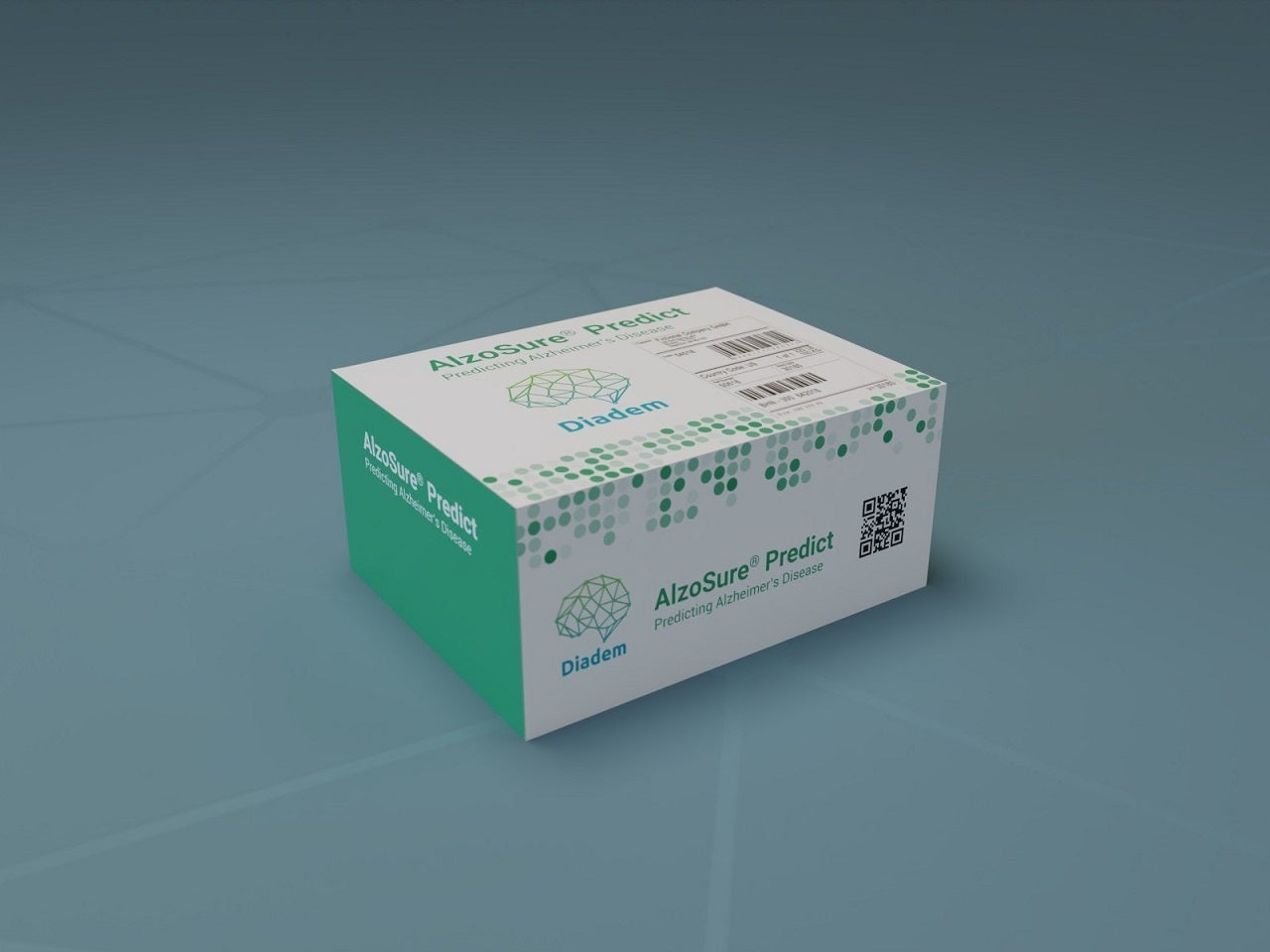
Diadem has secured CE-IVD certification for its non-invasive plasma-based AlzoSure Predict prognostic blood test for predicting Alzheimer’s disease (AD) in the early stages.
The certification will allow the company to market the new biomarker test in the UK as well as in the 27 countries of the European Union (EU).

Discover B2B Marketing That Performs
Combine business intelligence and editorial excellence to reach engaged professionals across 36 leading media platforms.
The blood test is designed for the identification of mild cognitive impairment (MCI) in patients of more than 50 years up to six years prior to clinical diagnosis.
It also helps in identifying whether a patient will progress to AD as well as indicating their current status, such as MCI.
AlzoSure Predict uses a patented antibody designed to bind to U-p53AZ and its target sequences.
Diadem CEO Paul Kinnon said: “This first regulatory approval for AlzoSure Predict is a signal event for our scientists whose insight and commitment have enabled us to achieve this milestone.

US Tariffs are shifting - will you react or anticipate?
Don’t let policy changes catch you off guard. Stay proactive with real-time data and expert analysis.
By GlobalData“We believe it represents a significant advance for the millions of patients and their families in Europe at risk from Alzheimer’s disease.
“Earlier knowledge will benefit those who are found to be not likely to advance to AD as well as those individuals found to be at risk, who can now take steps to slow the progression of the condition.”
In the coming months, the test is expected to be available to physicians and patients in the EU.
The company stated that the CE mark is based on positive data obtained from a longitudinal study that was conducted with 482 subjects.
In the study, AlzoSure Predict demonstrated the ability to identify whether individuals would progress to full-fledged AD up to six years before the illness was apparent.
Slated for completion in the coming months, phase two of this study includes biobank data on more than 1,000 additional subjects from the US and Europe.





